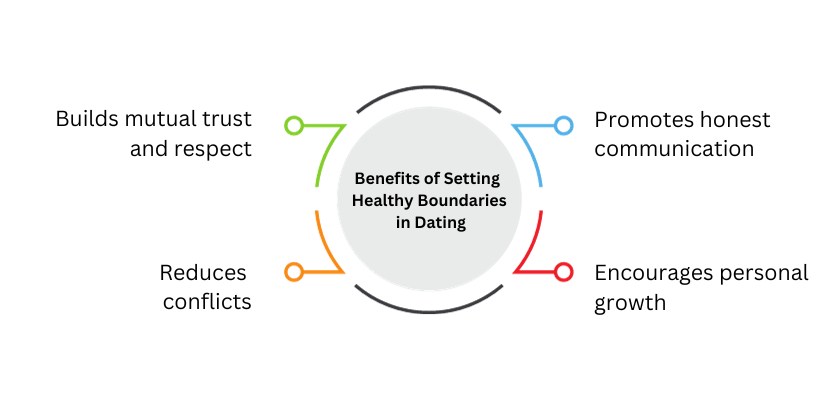
Relationship guidelines play an important role in our daily lives as we engage in various relationships with our family, friends, colleagues, and romantic partners. These relationships can bring immense joy, love, and support, but they can also be a source of stress, frustration, and even conflict without proper relationship guidelines. One essential factor that contributes to the success and well-being of any relationship is establishing healthy boundaries. Boundaries serve as the invisible lines that define where we end and others begin.
They are a fundamental part of maintaining our individuality, self-respect, and emotional well-being. Establishing healthy boundaries allows us to protect ourselves, communicate effectively, and nurture positive connections with others.
Relationship Guidelines for Setting Healthy Boundaries
There might be times when you feel that your boundaries are being violated or crossed, causing discomfort and resentment. It’s essential to identify these moments and address them before they escalate into bigger problems.
Here are a few relationship guidelines to help you set healthy boundaries in your relationships:
- Reflect on your needs and values: Take some time to identify your personal needs, values, and limits in various aspects of your life—emotional, physical, and mental. Understanding these aspects will enable you to define your boundaries clearly.
- Communicate openly and honestly: Once you have identified your boundaries, it is crucial to communicate them openly and honestly with your loved ones. Choose a safe and comfortable environment to have these discussions. Clearly express your needs, limits, and expectations, letting others know what you are comfortable with and what is unacceptable to you.
- Be assertive: Being assertive means expressing your thoughts, feelings, and needs in a direct and respectful manner. Practice using an I statement to avoid sounding accusatory or confrontational. For example, say I feel overwhelmed when you unload your problems on me every day instead of You always burden me with your problems!
- Learn to say no: Many of us struggle with saying no, fearing we might disappoint or upset others. However, saying no when something goes against your boundaries is crucial for your well-being. Remember, saying no is not a rejection of the person but rather a firm commitment to honoring yourself.
- Recognize red flags: Pay attention to any actions or behaviors that consistently cross your boundaries. It could be a friend who constantly cancels plans without notice, a partner who belittles your opinions, or a family member who invades your privacy. Acknowledge these red flags and take appropriate action, such as creating distance, seeking support, or even ending the relationship if necessary.
- Prioritize self-care: Setting healthy boundaries in relationships also involves taking care of yourself. Engaging in regular self-care activities, such as exercise, meditation, spending time with loved ones, or pursuing hobbies, helps you maintain your well-being and strengthen your boundaries.
- Seek support when needed: If you find it challenging to establish or maintain healthy boundaries, seek support from trusted friends, family, or professionals such as therapists or counselors. They can provide guidance, validation, and practical strategies to help you navigate these challenges.
How to Set Boundaries in a Relationship Without Being Controlling
It’s essential to note that setting boundaries in a relationship does not mean controlling or manipulating your partner’s behavior. This can be detrimental to the trust and respect in your relationship. Instead, healthy boundaries promote mutual respect, honesty, and open communication.
Here are some tips on how to set boundaries without being controlling:
- Use “I” statements instead of “you” statements when communicating your needs and limits.
- Respect your partner’s boundaries as well.
- Be open to compromise and negotiation.
- Avoid ultimatums or threats if your boundaries are crossed.
By following these guidelines, you can establish a healthy balance between asserting yourself and respecting your partner’s autonomy within the relationship.
The Benefits of Setting Healthy Boundaries in Dating
No doubt, relationship boundaries can be challenging to establish, especially when you are dating someone new. However, setting healthy boundaries early on in a dating relationship can bring numerous benefits.

- Builds mutual trust and respect: When both partners communicate their boundaries clearly and respectfully, it builds trust and respect for each other’s needs and limits.
- Promotes honest communication: Healthy boundaries encourage open communication without fear of judgment or rejection.
- Reduces conflicts: Setting boundaries helps avoid misunderstandings and conflicts that may arise due to unmet expectations.
- Encourages personal growth: Having clear boundaries allows individuals to focus on their personal growth while also nurturing the relationship.
- Creates a stronger foundation for the relationship: Setting healthy boundaries helps create a strong foundation for the relationship, promoting a sense of security and stability.
Why Boundaries Are Essential in All Relationships
Boundaries are not only crucial for romantic relationships but also for any relationship, including friendships, family, and even professional relationships. According to experts, setting boundaries is necessary for healthy relationships as it:
- Promotes mutual respect and understanding between individuals.
- Allows individuals to maintain their individuality and personal space.
- Encourages open and honest communication.
- Protects against emotional or physical harm.
- Respect each person’s unique needs, values, and limits.
Conclusion
Setting healthy boundaries in relationships is crucial for maintaining a sense of self, promoting mutual respect, and nurturing positive connections. By following these relationship guidelines, you can establish clear boundaries while also respecting your partner’s autonomy. Remember that boundaries are beneficial for all types of relationships and promote trust, respect, and open communication. Prioritize your well-being by setting and maintaining healthy boundaries in all your relationships.




